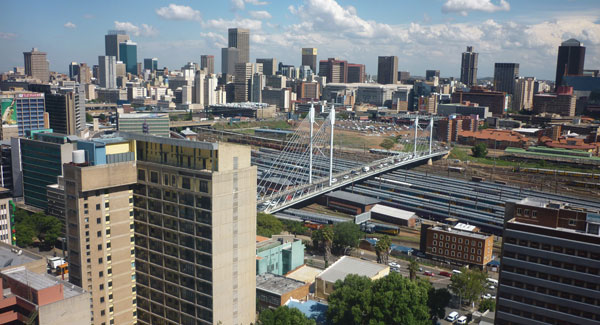Midrand – South Africa has achieved over the past 19 years a level of macro-economic stability not seen before the dawn of democracy in 1994, says Transport Minister Dipuo Peters.
Speaking at the New Age/SABC business briefing in Midrand on Monday, Peters said such advances have laid a foundation for sustained investment and improved growth.
“We’ve seen progressive advances amongst the majority of our people in areas such as education, health and other basic services,” she said.
With regard to achievements in the transport sector, Peters said government had made significant strides to transform the socio-economic landscape of South Africa.
“…In 1994, (government) inherited transport policies, institutions and legislations, which were antithetical to the democratic ethos.
“We’ve worked hard over the last 20 years to ensure that we improve the lives of our people and we’ve recorded notable advances in the transport sector. Good roads are the backbone of our economy,” she said.
In 1998, the government established the South African National Roads Agency Limited (Sanral) to look into the national roads asset, and it is now managing over 19 700km of roads.
Next year on April 27, South Africa will celebrate 20 years of freedom and democracy. The historic occasion presents an opportunity for the nation to reflect on the path the country has walked towards freedom.
Road crashes cost to economy
With regards to fatal crashes, the minister said research indicated that at least R306 billion is lost to the South African economy annually as a result of accidents.
This cost includes loss of manpower and skills, emergency medical services, post-crash services such as road repairs, clean-up operations and compensation paid out to victims.
The Road Accident Fund (RAF) alone pays out at least R15 billion to victims of road crashes each year. Of this amount, R1 billion is for continued medical support to those who sustain injuries.
Through its Community Outreach Programme, RAF on the Road, the fund is able to swiftly register and settle claims on location.
Corruption
Peters said the practice of corruption and bribery was not only a gross act of criminality, but it was a deed with potential fatal consequences.
She said the practice permeated across a number of critical functions in the transport sector, which contributed to a high number of fatalities.
The minister said corruption was prevalent at vehicle licensing testing centres and driving school operators conducted themselves in ways that were in violation of the law.
“It remains a concern that untrained and unqualified drivers are issued with licences. Only a learner driver, who has received adequate training, should be booked for driver’s licence testing.
“Processes must not be circumvented in a bid to make extra revenue at the expense of people’s lives. It is worth noting that several interventions are already underway within the legislative framework that governs conduct on our roads,” she said.
Such intervention include the National Road Traffic Act to introduce a two-year probation period for first time applicants of driver’s licences, and the reduction of the legal alcohol content limit to 0.05% for drivers of normal vehicles and 0.02% for professional drivers.
National Road Safety Summit
Peters also hailed as a resounding success the two-day National Road Safety Summit held in Boksburg under the theme, Together Championing Road Safety 365 days.
Delegates at the summit recommended that a common approach to the recruitment and selection of traffic law enforcement officers should be adopted, and that more officers and road safety practitioners should be recruited.
A recommendation was also made for traffic law enforcement to be applied consistently across the country.
Processes need to be put in place to create a rapid reporting and response system on the roads authority level to ensure action and compliance and the timely fixing of potholes. – SAnews.gov.za








